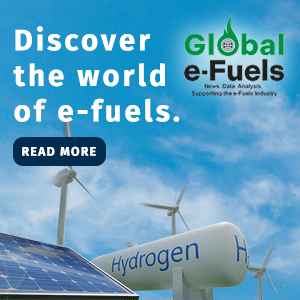Perfectly clean
The Kluthe Group, with its headquarters in Heidelberg, is a family-owned producer of chemical products for surface treatment.
Tank cleaning is a significant pillar of its business and the company has a complete product portfolio to deal with everyday pollution to more difficult challenges. These are not only available in Europe, but across a global network of more than 44 countries.
Research and development
The continuous changes in chemical legislation within the EU that are managed by the European Chemicals Agency (ECHA) under the REACH European environmental regulations, has forced Kluthe to keep up to date with the most modern cleaning products that comply with these rules.
A spokesman for the company said: “This is a challenge for us as a chemical company as the time between product development, testing and market introduction is getting shorter and shorter.”
Alongside the development of a new generation of cleaning products, its technical sales consultants also need to be retrained continuously.
They need to ensure that the advice they are offering to tank cleaning stations adheres to the latest regulations.
The spokesman added: “Furthermore, it is important to inform our clients about the total cost of ownership. The new generation of cleaners might be more expensive, but if the concentrations used are lower, it might turn out to be a bargain.”
Energy intensive industry
Cleaning tanks normally takes place at high temperatures and the company can, therefore, be classified as a high intensive energy user.
Kluthe has been developing its Hakupur LT-series, which is an alkaline and acidic cleaning product for both internal and external operations. This low temperature (LT-) series is now available for market testing.
“We have successfully used the same type of surfactants that are already in use in our metal surface treatment products. These products are used in chemical pretreatment lines prior to the painting process.
“This is a huge advantage because with bilateral discussions between the different labs, we are able to learn more from each other and pick up new ideas and develop new technologies, which we build into our new products,” added the spokesman.
Sustainability
Kluthe is a firm believer in having a sustainable business, which is essential for the future.
The spokesman said: “We strive to shape a world in which a flourishing economy, the well-being of people and clean environment work in harmony.
“For this reason, environmental and climate protection, the responsible use of resources, a social corporate culture and sustainable supply chains play a decisive role in all our decisions.
“We are actively committed to a sustainable world from the product design stage, through to manufacturing and the supply and use of our Hakupur products. We ensure the CO2 impact is as low as possible.
“At Kluthe, we work consistently and continuously on our sustainability strategy to lower our own CO2 impact.
“We are constantly working on efficiency processes as well as reducing direct emissions at our own production sites (Scope I & II). This is where the product carbon footprint comes into play.”
Product carbon footprint (PCF)
Kluthe is one of the leading chemical companies able to identify the climate impact of its own products - the PCF.
From years of collecting data within the supply chain and also from external consultants has resulted in the development of a calculator that can identify the individual PCF of each product.
“Companies that are not aware of the CO2-emissions of their operations should start as soon as possible, or there will be challenging times ahead.
“The latest new EU legislation or CSRD will soon require companies to measure and publish their CO2 emission levels,” according to Kluthe’s sustainability manager.
“We can support you in this challenging task and provide you with advice and climate-friendly products. This is because we are actively committed to a sustainable world. Yes, we care.”
For more information: Visit: kluthe.com








